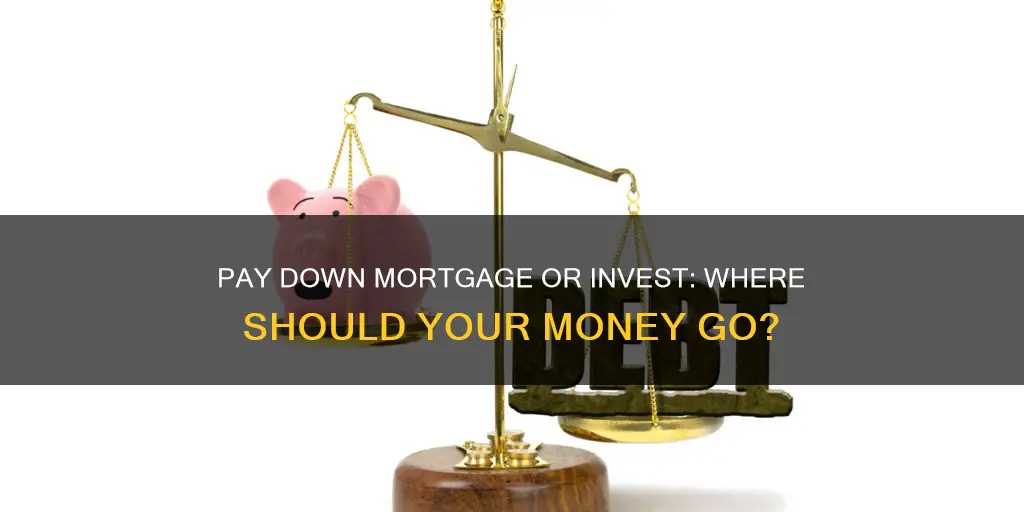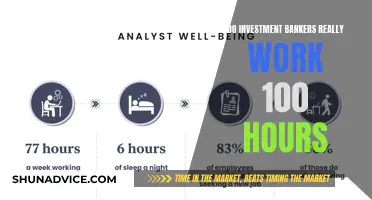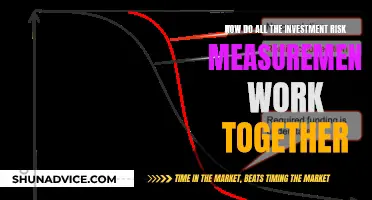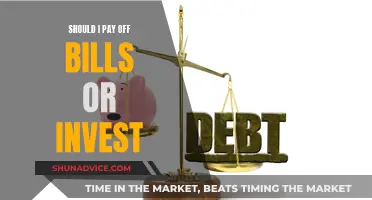
Paying off your mortgage or investing your money elsewhere is a common dilemma for homeowners. The answer depends on your individual circumstances, but there are some key factors to consider.
Firstly, how comfortable are you with risk? Paying off your mortgage is traditionally a safer move, as it's predictable and you'll know exactly how much you're saving. On the other hand, investing in the stock market, for example, comes with higher risks but potentially higher returns.
Secondly, consider how far along you are in your mortgage payments. If you're nearing the end of your payments, it may be more beneficial to focus on investing. However, if you're in the early years of your mortgage, it's usually smarter to pay it down as much as possible to avoid paying more interest over time.
Other things to keep in mind include your interest rate, your financial situation, and your retirement plans. Consult a financial advisor to help you weigh up your options and make the best decision for your circumstances.
| Characteristics | Values |
|---|---|
| Risk tolerance | If you have a low risk tolerance, paying off your mortgage may be the better option. |
| Interest rates | If your mortgage interest rate is high, it may be better to pay it off. |
| Investment returns | If you expect high investment returns, investing may be the better option. |
| Emergency savings | If you have sufficient emergency savings, investing may be a good option. |
| Retirement savings | If you are saving enough for retirement, investing may be a good option. |
| Debt | If you have other high-interest debt, such as credit card debt, it may be better to pay this off first. |
| Income | If your income has increased, you may have more money to invest. |
| Market conditions | If the stock market is volatile, paying off your mortgage may be a safer option. |
| Tax deductions | Paying off your mortgage early will result in losing tax deductions on mortgage interest payments. |
| Peace of mind | Being debt-free can provide peace of mind and reduce financial stress. |
What You'll Learn

Paying off a mortgage early can save you thousands in interest over the long run
Paying off your mortgage early can save you thousands of dollars in interest. However, before you start throwing a lot of money in that direction, you’ll need to consider a few factors to determine whether it’s a smart option.
Every time you make a mortgage payment, it’s split between your principal and interest. Most of your payment goes toward interest during the first few years of your loan. You owe less in interest as you pay down your principal, which is the amount of money you originally borrowed. At the end of your loan, a much larger percentage of your payment goes toward the principal.
You can apply extra payments directly to the principal balance of your mortgage. Making additional principal payments reduces the amount of money you’ll pay interest on – before it can accrue. This can knock years off your mortgage term and save you thousands of dollars.
Example scenario
Let’s say you borrow $150,000 to buy a home at 6% interest with a 30-year term. By the time you pay off your loan, you’ll have paid a whopping $173,757.28 in interest. This is in addition to the $150,000 you initially borrowed.
Now, let’s say that you pay an extra $100 every month toward a loan with the exact same term, principal and interest rate. At the end of the term, you’ll have paid $128,170.57 total in interest. That’s $45,586.71 less than you would have paid if you didn’t make any extra payments. You’ll also pay your loan off 81 months earlier than you would if you only paid your premium each month.
Other factors to consider
While paying off your mortgage early can save you thousands in interest, there are other factors to consider.
- Liquidity: Paying off your mortgage early ties up a good chunk of your liquidity and net worth in your home, which might make it harder to access later.
- Tax deductions: You will no longer be eligible for the federal mortgage interest tax deduction if you are still claiming it.
- Investment opportunities: You could miss out on potential higher returns from other investments.
- Market fluctuations: You might not realise as much from your home as you had hoped if the market drops and you have to sell quickly.
- Prepayment penalties: Depending on the terms of your loan, you could be subject to a prepayment penalty for paying off your mortgage early.
Seeking Investors for Your Farm?
You may want to see also

Investing instead may earn you a higher rate of return
Investing instead of paying down your mortgage may earn you a higher rate of return.
The stock market has historically returned an average of about 10% annually. While performance isn't a sure thing, if your mortgage rate is less than 10%, you could gain more by investing. For example, if you have a 30-year mortgage with a fixed interest rate of 3.5% and you receive a windfall of $120,000, investing that money in the financial markets could yield a higher rate of return than paying off your mortgage early.
If you invest $100,000 with an average rate of return of 5% over 10 years, you would earn $62,889. This is more than the interest saved by paying off the mortgage early, even with a loan rate of 5.5%. With a 10-year rate of return of 7% or 10%, you would earn more than double the interest saved.
Another benefit of investing is that stocks, bonds, mutual funds, and ETFs are highly liquid, meaning you can sell them quickly and access your money if needed. In contrast, property is an illiquid asset, and it may take time to sell your home and access your equity.
Additionally, if you invest in a retirement account, you may be able to take advantage of perks like employer matching and tax breaks. For example, if your employer matches half of your contributions up to a certain percentage of your salary, you can gain free money through compound earnings.
However, it's important to consider your risk tolerance when deciding between paying down your mortgage and investing. Investing in the stock market is inherently riskier than paying off your mortgage, and there is a possibility of losing money. The stock market can be volatile, and there are no guarantees. A bad year or two could put a big dent in your portfolio.
Therefore, while investing instead of paying down your mortgage may offer the potential for higher returns, it's essential to carefully consider your financial situation, risk tolerance, and investment goals before making a decision.
SPACs: The New Investment Craze
You may want to see also

Paying off a mortgage can be a liberating feeling
But there are a few things to keep in mind. Firstly, you'll need to go through the process of "discharging a mortgage". This involves requesting a payoff quote from your mortgage lender, making the final payment, receiving documents verifying your loan repayment, and discharging your lender's interest in the property through your province's land registry office (which may require the help of a lawyer or notary public).
You'll also want to make sure to cancel any automatic mortgage payments, get a refund on your escrow, and inform your insurance company and tax collector that you'll be paying them directly from now on.
It's important to note that paying off your mortgage early may come with prepayment penalties, so be sure to check with your lender before making any decisions. Additionally, consider whether you have any outstanding high-interest debt, as it may be wiser to prioritize paying that off first.
Finally, paying off your mortgage early means your money is tied up in home equity, so you'll have less access to cash for major life expenses and emergencies. Weigh the pros and cons carefully before making a decision.
Smart Ways to Invest $30,000
You may want to see also

Investing is riskier but may offer a greater pay-off
Investing is a riskier option than paying off your mortgage, but it may offer a greater pay-off. The stock market can be volatile, and there is a risk of losing some or all of your money. However, the potential for higher returns makes it an attractive option for those seeking to grow their wealth.
Higher Returns
The biggest benefit of investing is the potential for higher returns compared to the interest saved by paying off your mortgage early. Historically, the average stock market returns have been significantly higher than mortgage rates, resulting in greater financial gains over time.
Liquidity
Investing in stocks, bonds, and other market instruments offers greater liquidity than paying off your mortgage. These investments can be easily sold and converted into cash if needed, providing quick access to funds in case of financial emergencies or other investment opportunities.
Employer Match
If you invest in a retirement account, you may be eligible for employer matching contributions, which essentially provides you with free money to boost your retirement savings. This can be a significant advantage, especially if your employer matches a large portion of your contributions.
Risk and Volatility
The stock market is subject to volatility, and there is always the risk of losing money. The potential for higher returns comes with the possibility of incurring significant losses. It is important to carefully consider your risk tolerance and ensure that your investment strategy aligns with your comfort level.
Increased Debt
Choosing to invest instead of paying off your mortgage means that you will continue to carry debt. Until your mortgage is fully repaid, you do not own your home outright, and there is a risk of losing it if you are unable to make the payments.
Peace of Mind
While investing offers the potential for higher returns, paying off your mortgage can provide peace of mind and reduce financial burden. Owning your home debt-free can be liberating and reduce stress, especially for those who are averse to the idea of constant debt.
The decision to invest or pay off your mortgage depends on various factors, including your financial situation, risk tolerance, and long-term goals. It is essential to carefully weigh the pros and cons of each option before making a decision.
Starbucks: A Brew Worth Betting On
You may want to see also

Consult a financial advisor to help you decide
There are many factors to consider when deciding whether to pay down a mortgage or invest, and a financial advisor can help you navigate these complexities.
A financial advisor will be able to assess your individual circumstances and help you understand how your finances, risk tolerance, and life stage should inform your decision. For example, if you are near the end of your mortgage payments, a financial advisor might recommend an aggressive approach to paying off your loan. On the other hand, if you are in the early years of your mortgage, it may be more beneficial to focus on investing.
A financial advisor can also help you understand the tax implications of your decision. For instance, in some places, mortgage interest is tax-deductible if you itemize deductions on your income tax return. Similarly, investing in a retirement account may provide tax benefits.
Another factor to consider is your comfort with risk. Paying down your mortgage is generally considered a safer option, as it is predictable and you will know exactly how much you are saving. In contrast, investing in the stock market can provide higher returns but comes with greater risk. A financial advisor can help you understand your risk tolerance and make a decision that aligns with your comfort level.
Additionally, a financial advisor can provide guidance on how your decision may impact your overall financial goals. For example, investing in your retirement account early on can take advantage of compound interest and help you build wealth over time.
Finally, a financial advisor can help you explore alternative options, such as refinancing your mortgage to a shorter-term loan or focusing on paying off other high-interest debts.
In conclusion, consulting a financial advisor is a wise decision when trying to decide between paying down a mortgage and investing. They can provide personalized advice and help you navigate the complexities of your financial situation, risk tolerance, tax implications, and overall financial goals.
Investments: Where People Put Their Money
You may want to see also
Frequently asked questions
Paying off your mortgage early can save you thousands of dollars in the long run. You'll save on interest, be debt-free, and free up funds for other investments.
You could cut into savings and your money will be tied up in an illiquid asset. You will also lose the ability to take the mortgage interest deduction.
You'll see a higher rate of return, increase your future wealth, and have better asset liquidity. If you're investing in a retirement account, you may be able to take advantage of perks like employer matching and tax breaks.
Investing is riskier and you're still making payments. You won't make much progress on your debts and there are no guarantees of returns.
Your financial situation, risk tolerance, and the opportunity cost of investing vs paying off your mortgage.







